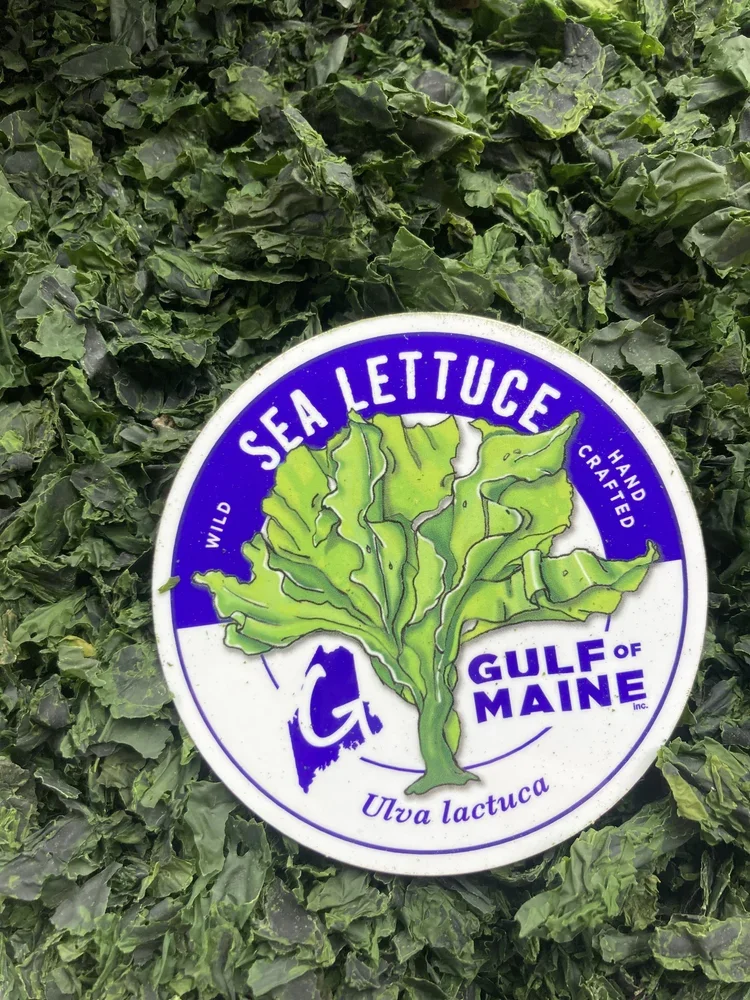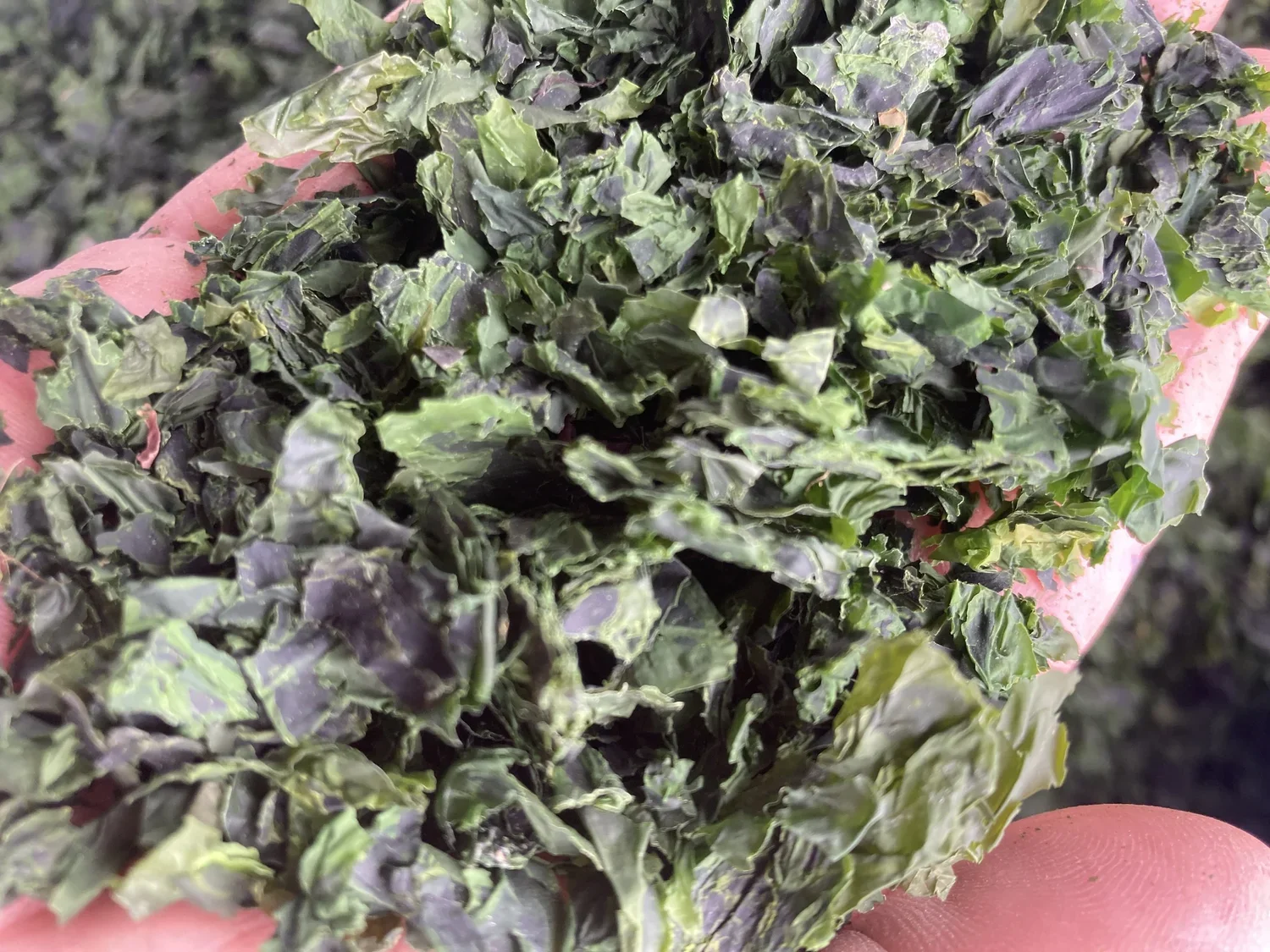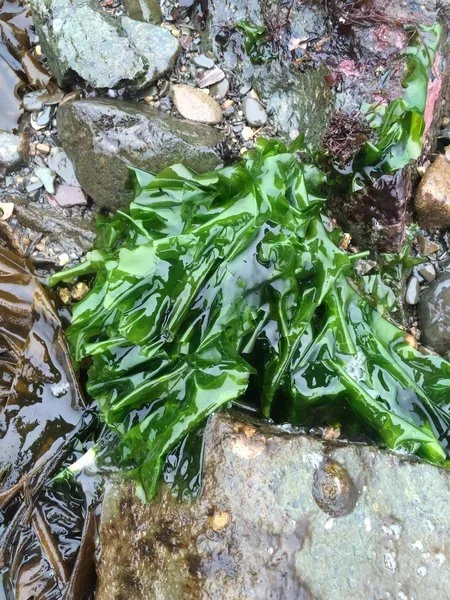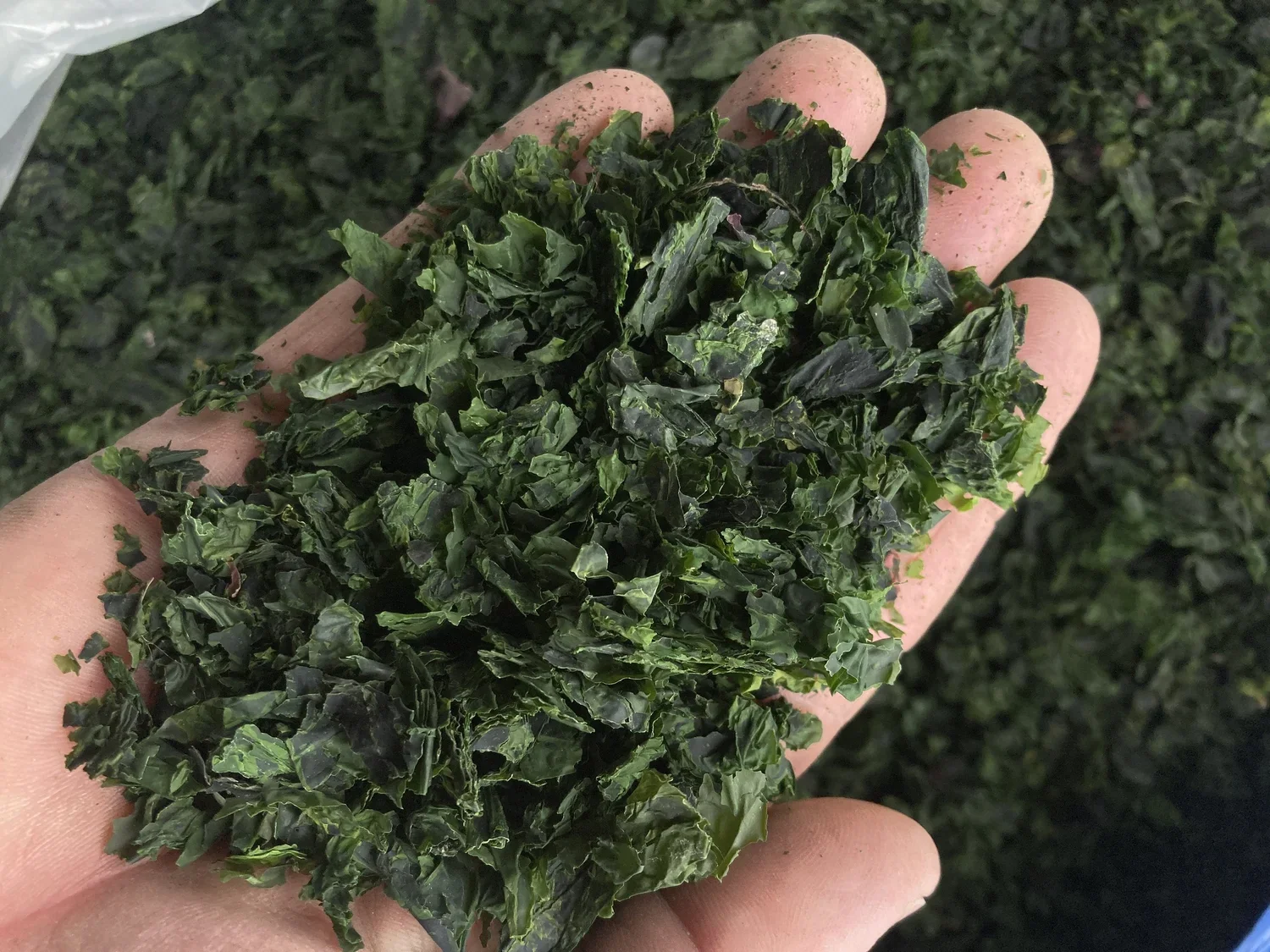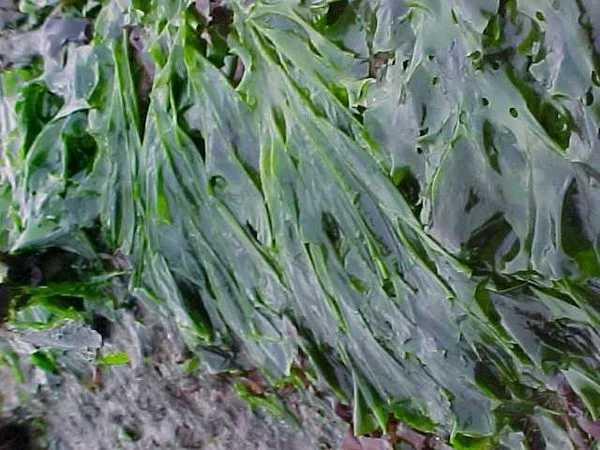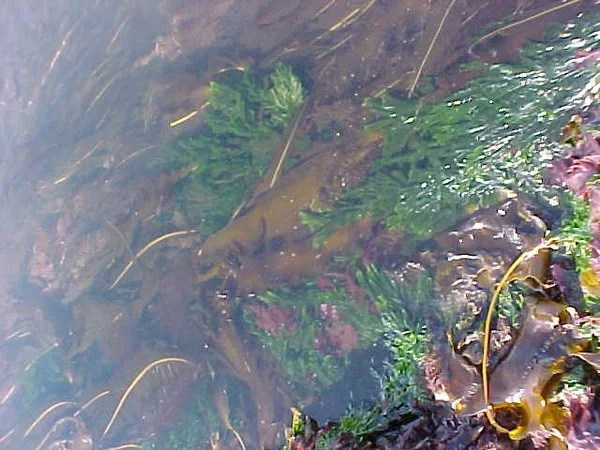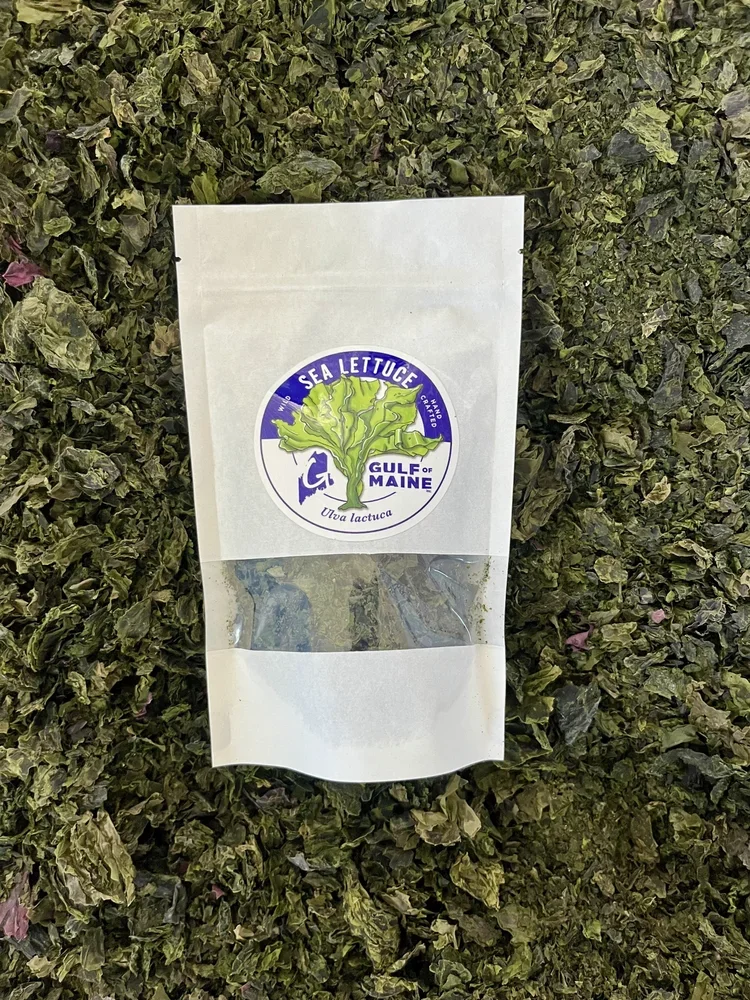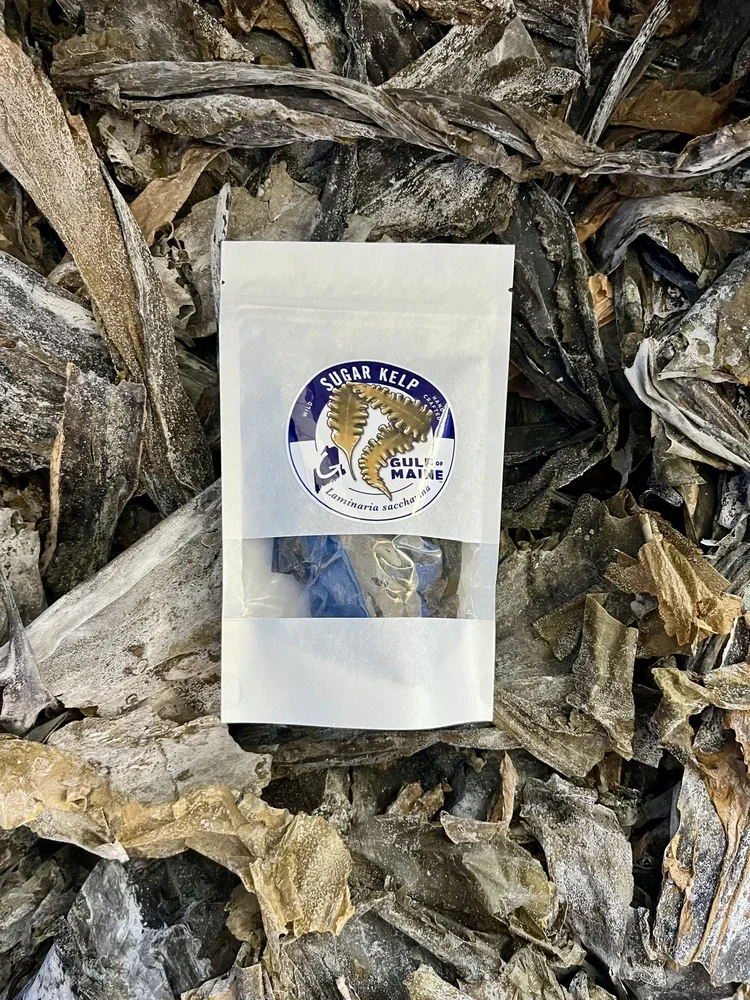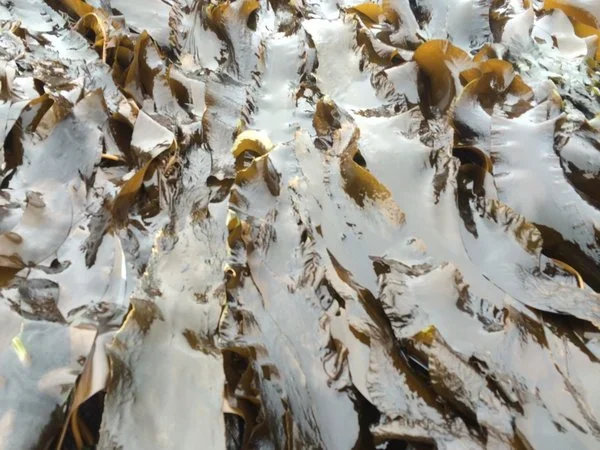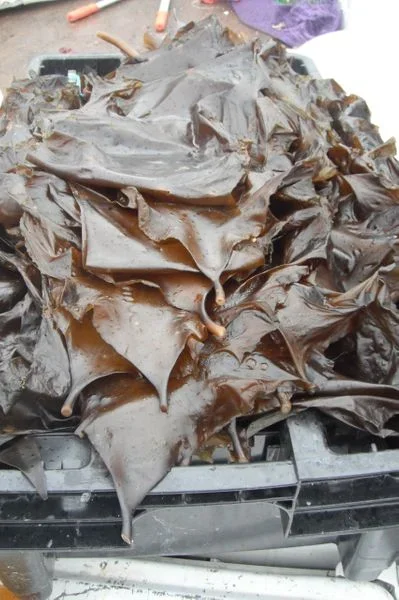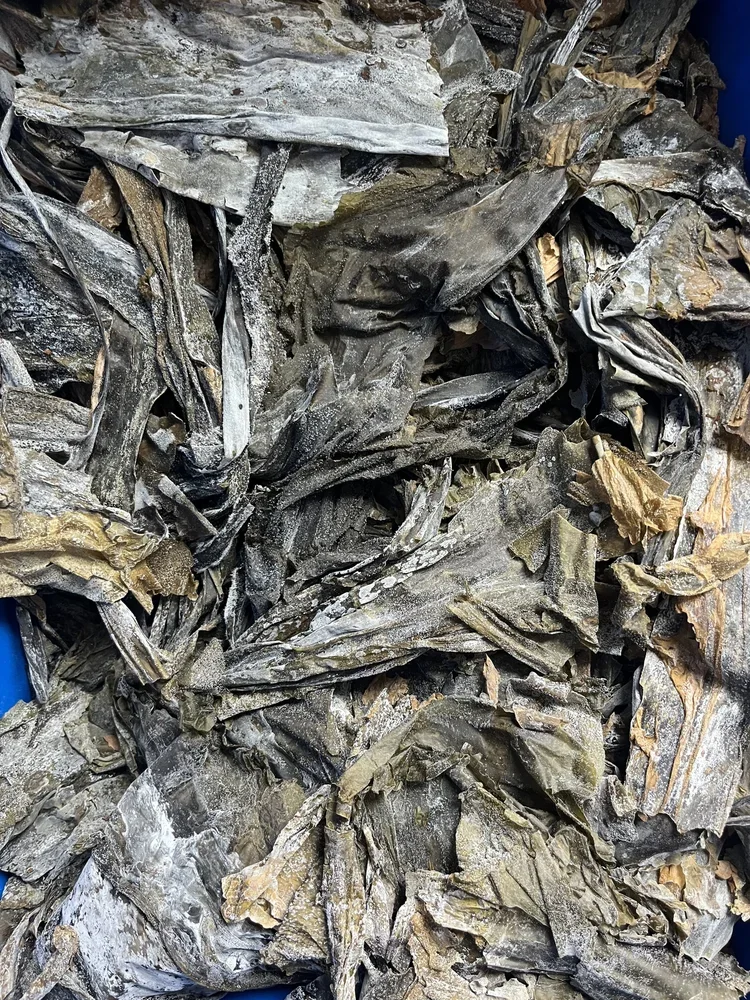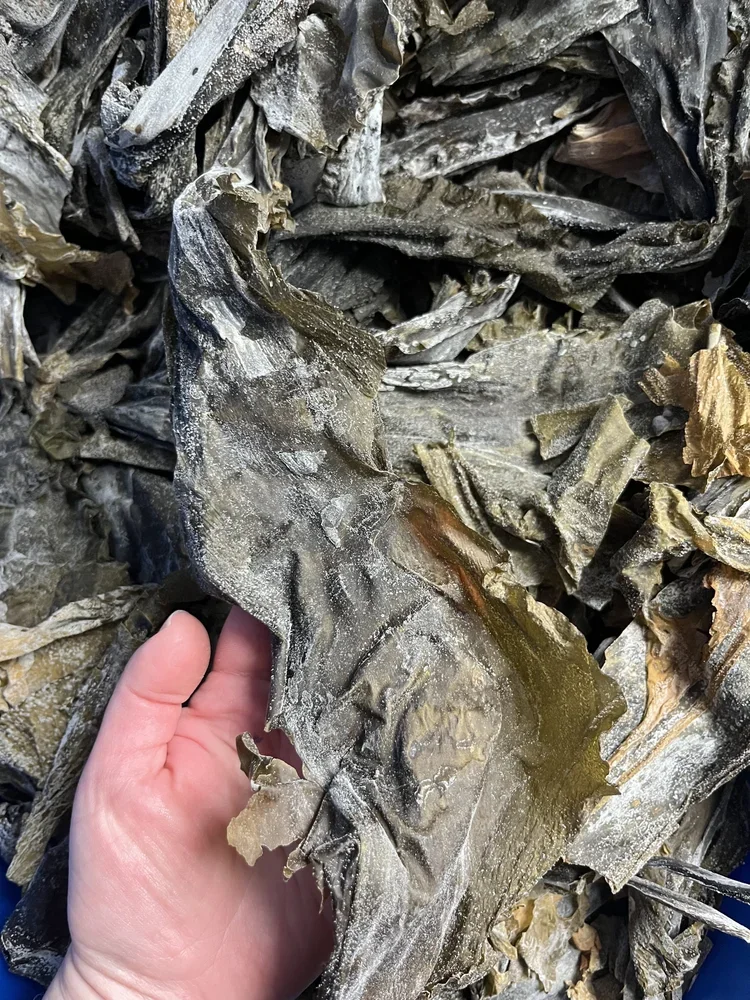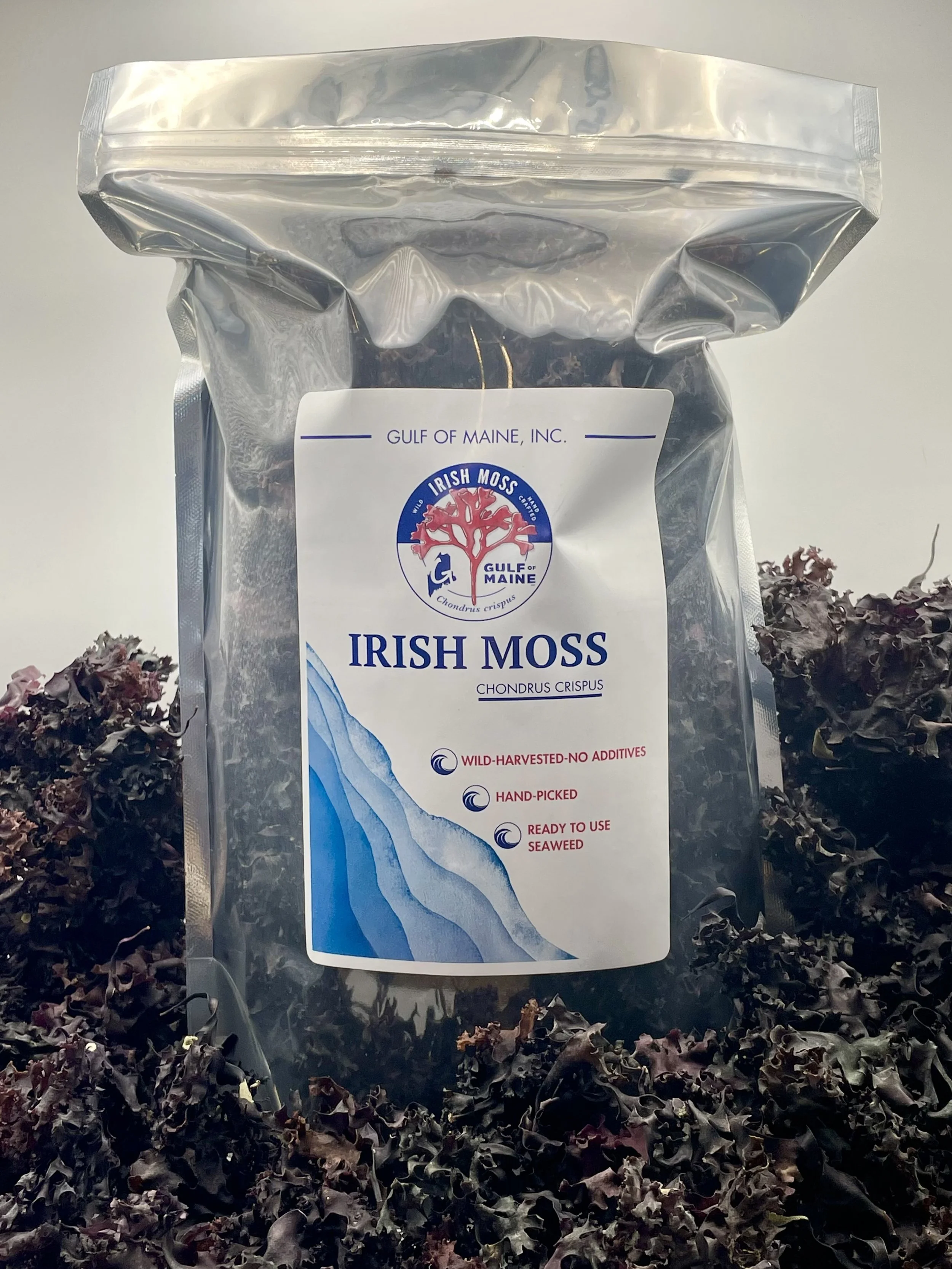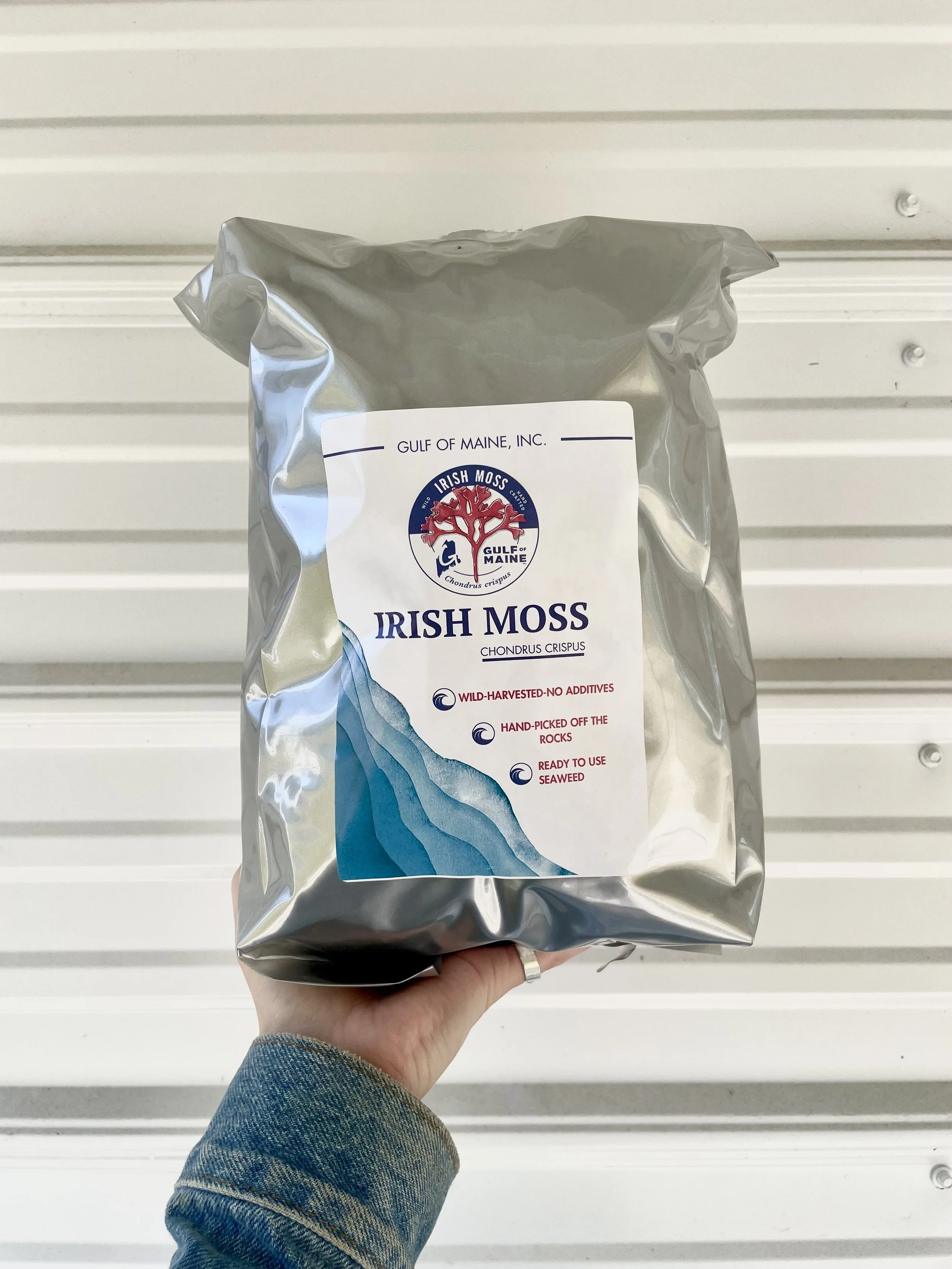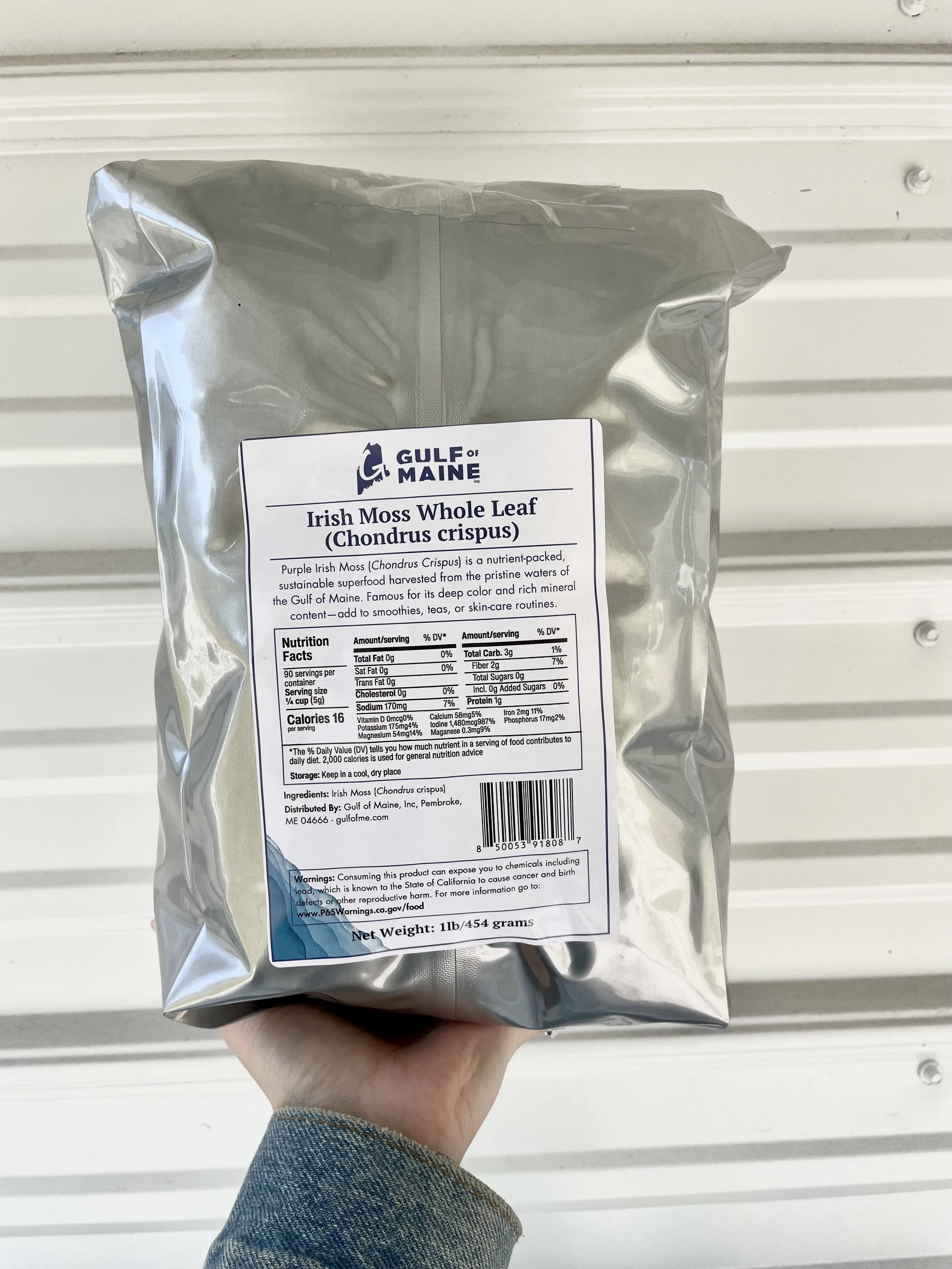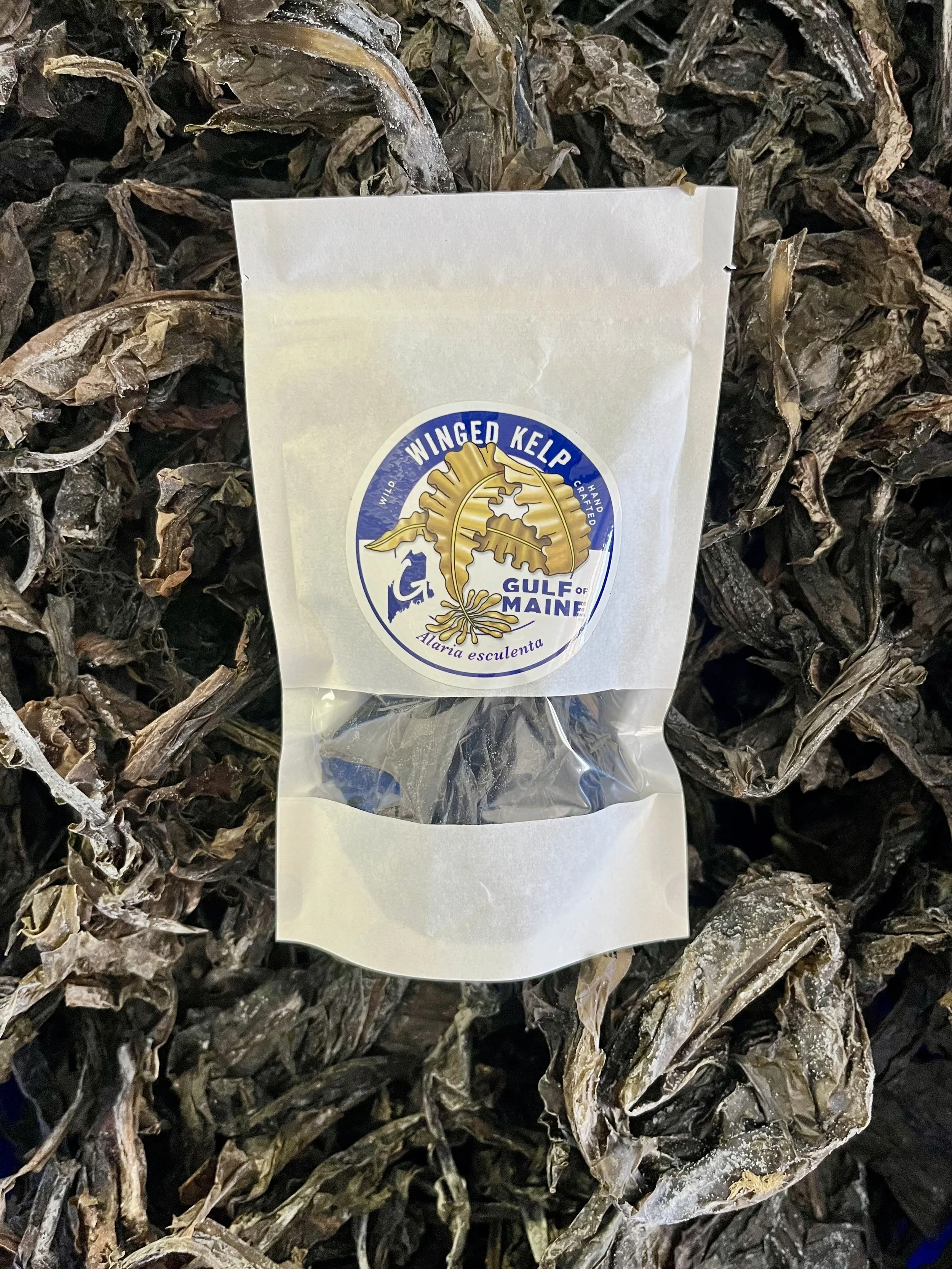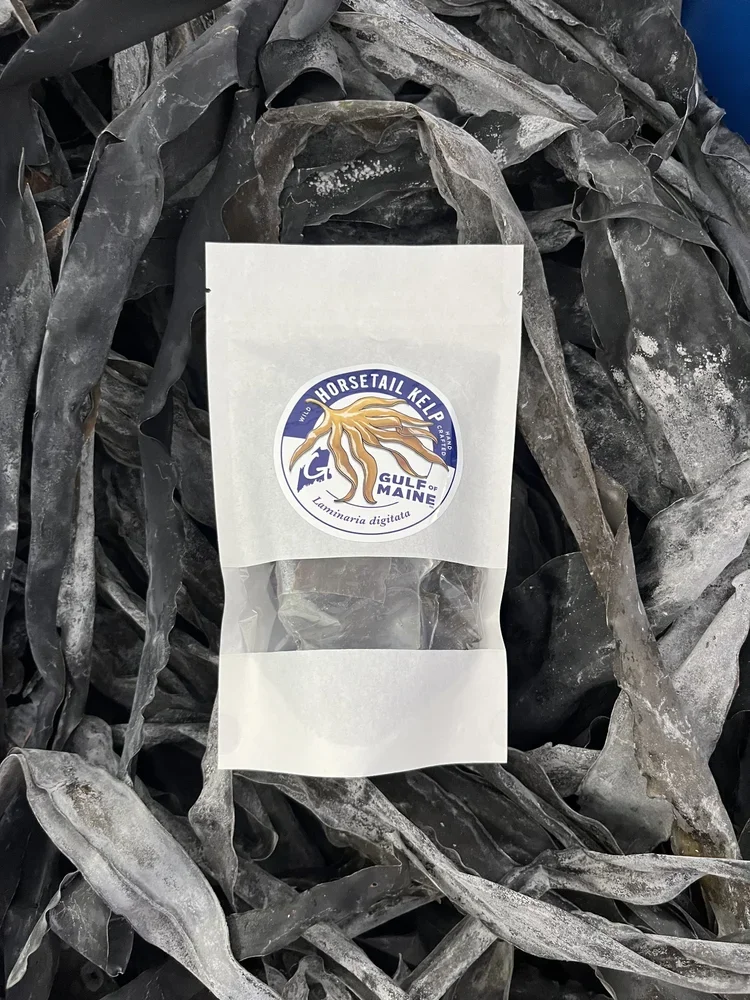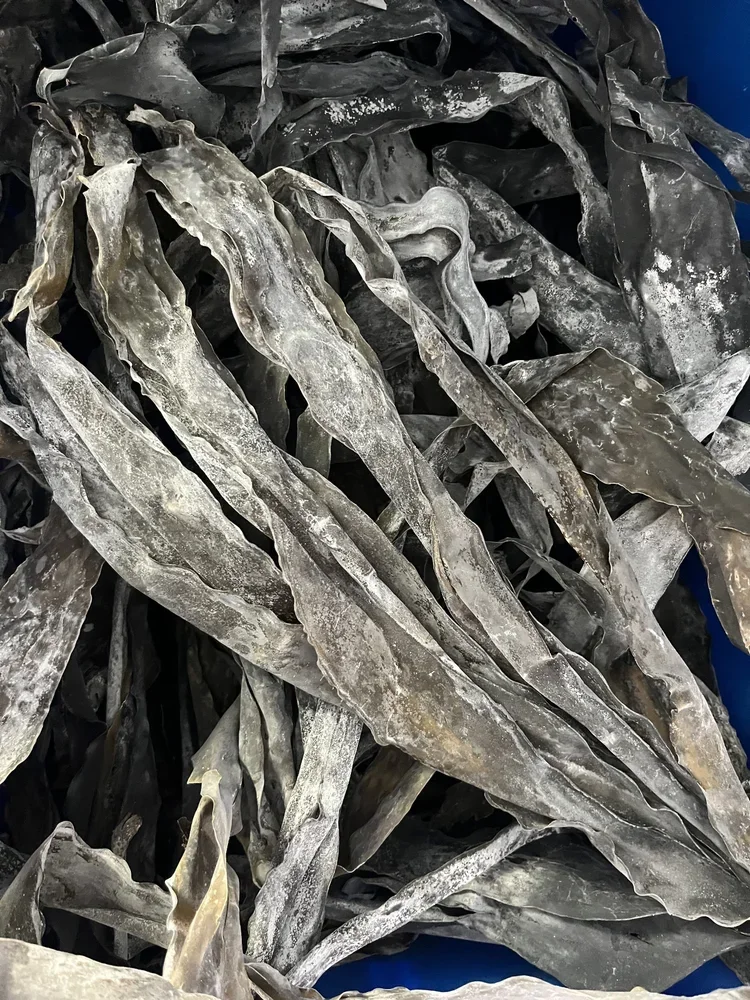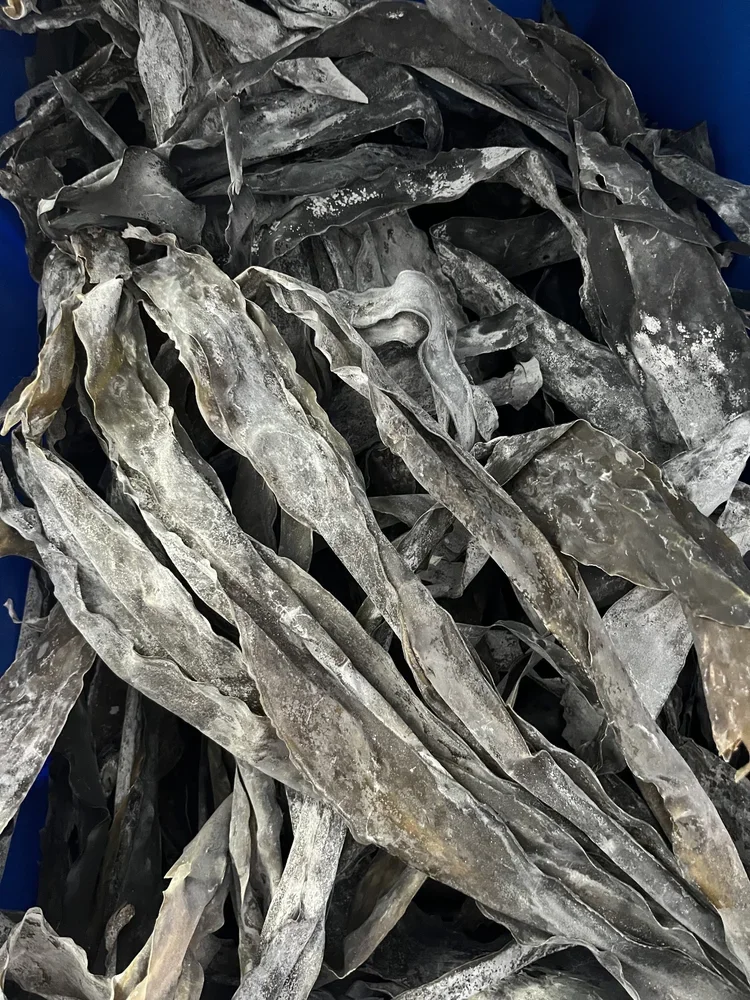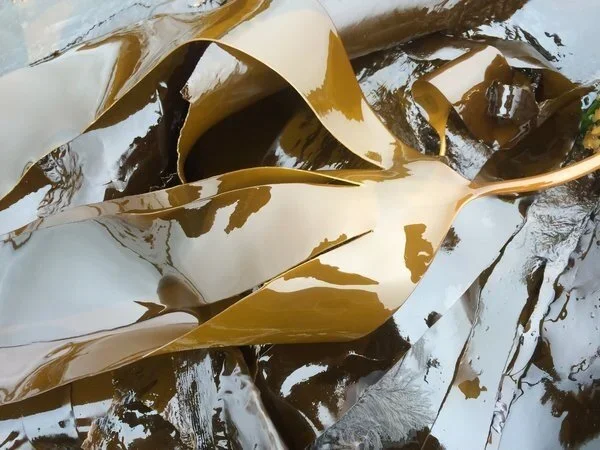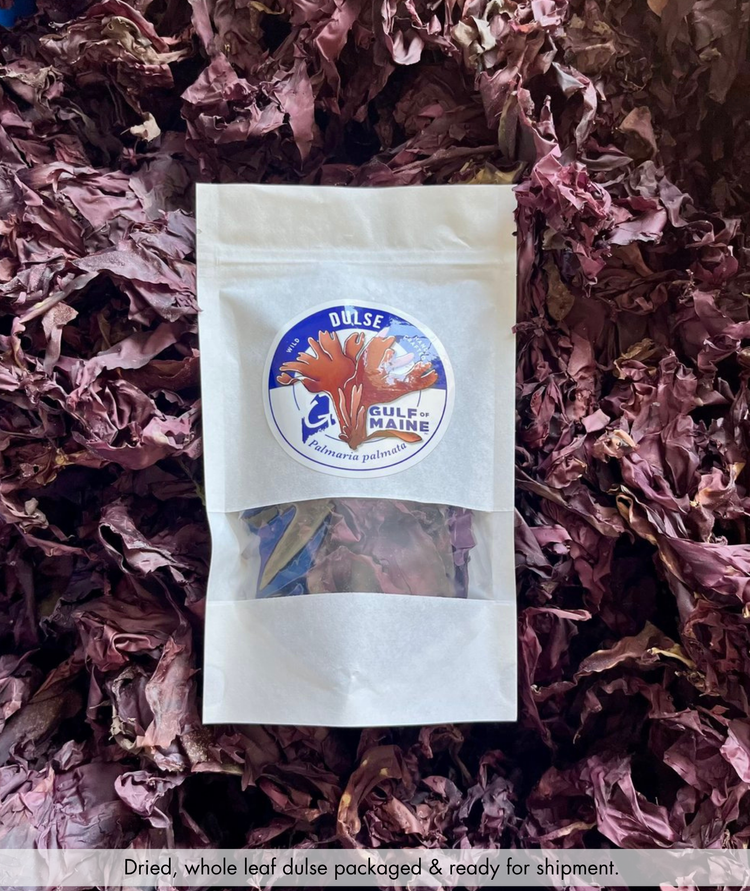 Image 1 of 3
Image 1 of 3

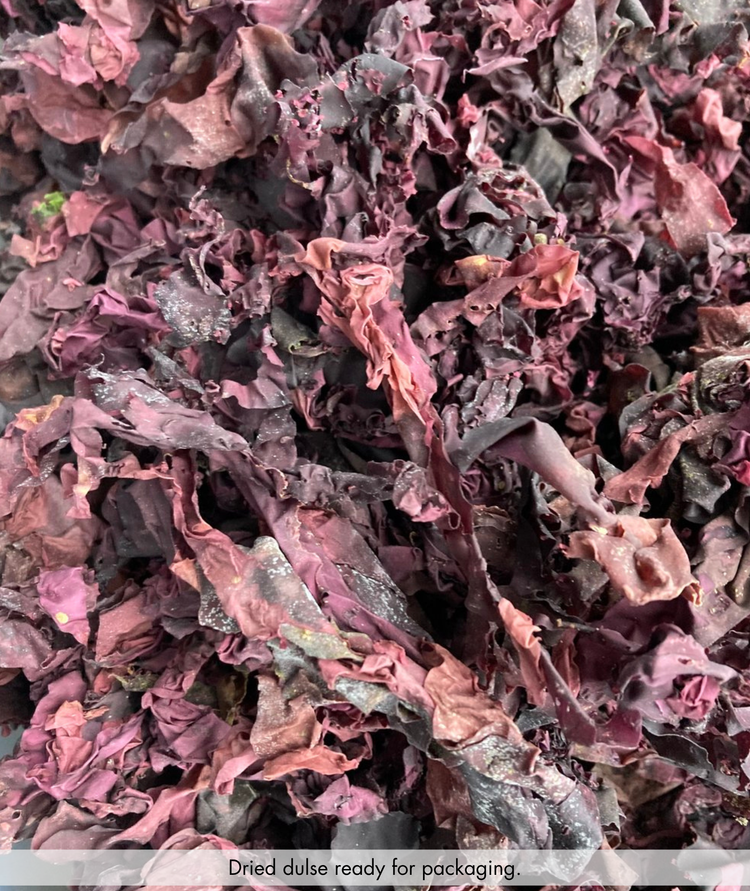 Image 2 of 3
Image 2 of 3

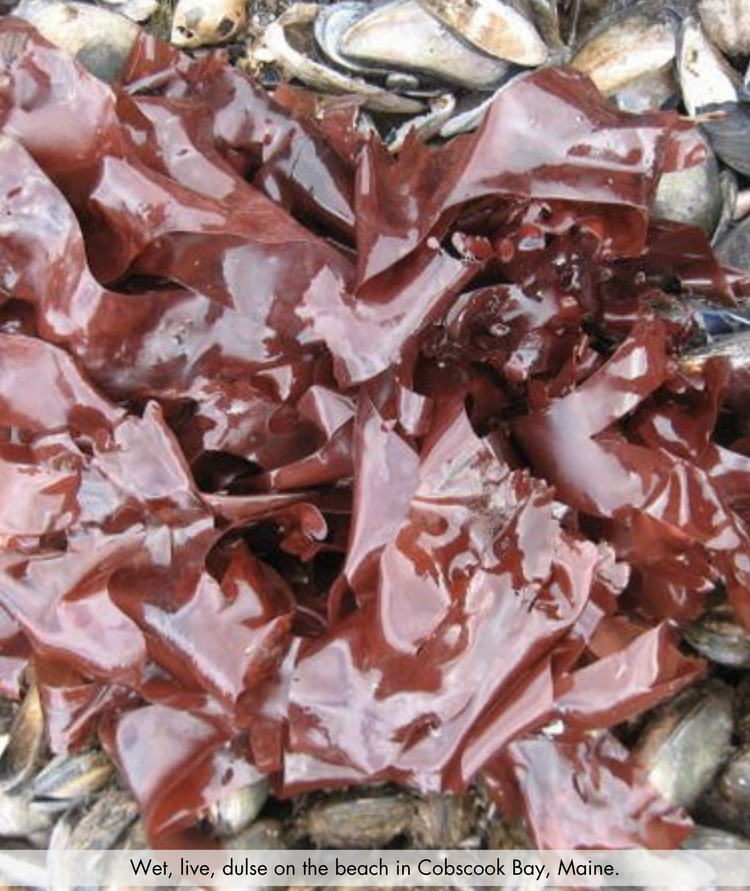 Image 3 of 3
Image 3 of 3




Dulse (Palmaria palmata) —Whole Leaf, Flakes, Powder
Dried Dulse (Palmaria palmata)
Hand-harvested from the pristine, nutrient-rich waters of the Gulf of Maine, Dulse (Palmaria palmata) is a vibrant, deep-red seaweed celebrated for its natural flavor and nutritional value. Known as one of the North Atlantic’s most iconic sea vegetables, Dulse offers a savory, umami-rich taste that makes it ideal for cooking, snacking, and wellness applications. Each frond is carefully hand-collected from intertidal rocks and ledges, where the seaweed thrives in dynamic tidal currents, then naturally air-dried to preserve its rich color and mineral content.
Key Facts:
Common name: Dulse
Scientific name: Palmaria palmata
Locations: Lower intertidal on low-tide rocks and ledges in areas with strong currents and water flow
Seasonality: Available all year; best in spring–fall
Colors: Bright red, maroon, burgundy, and sometimes nearly black
Size: Fronds range from 6” – 12”
Collected: By hand
Quantity: 1 lb dried
Uses: Snacks, soups, salads, health supplements, teas, skincare products, and culinary seasoning
Sustainably Wild-Crafted and Handpicked:
Our Dulse is hand-harvested from the Gulf of Maine’s cold, clean waters, ensuring the highest quality and freshness. Naturally dried without additives or preservatives, it retains its essential nutrients and signature salty-sweet flavor. Sustainable harvesting practices protect the intertidal ecosystem and allow for natural regrowth each season.
Rich in Nutrients and Health Benefits:
Dulse is packed with essential minerals and vitamins, including iodine, potassium, calcium, magnesium, and antioxidants. It supports thyroid health, strengthens immunity, and promotes healthy skin and digestion—making it a valuable addition to plant-based and coastal diets alike.
Note: This is a natural edible seaweed. Variations in color, texture, and appearance from photos should be expected. If you would like any specimen preserved for study, please send a request to: info@gulfofme.com
Dried Dulse (Palmaria palmata)
Hand-harvested from the pristine, nutrient-rich waters of the Gulf of Maine, Dulse (Palmaria palmata) is a vibrant, deep-red seaweed celebrated for its natural flavor and nutritional value. Known as one of the North Atlantic’s most iconic sea vegetables, Dulse offers a savory, umami-rich taste that makes it ideal for cooking, snacking, and wellness applications. Each frond is carefully hand-collected from intertidal rocks and ledges, where the seaweed thrives in dynamic tidal currents, then naturally air-dried to preserve its rich color and mineral content.
Key Facts:
Common name: Dulse
Scientific name: Palmaria palmata
Locations: Lower intertidal on low-tide rocks and ledges in areas with strong currents and water flow
Seasonality: Available all year; best in spring–fall
Colors: Bright red, maroon, burgundy, and sometimes nearly black
Size: Fronds range from 6” – 12”
Collected: By hand
Quantity: 1 lb dried
Uses: Snacks, soups, salads, health supplements, teas, skincare products, and culinary seasoning
Sustainably Wild-Crafted and Handpicked:
Our Dulse is hand-harvested from the Gulf of Maine’s cold, clean waters, ensuring the highest quality and freshness. Naturally dried without additives or preservatives, it retains its essential nutrients and signature salty-sweet flavor. Sustainable harvesting practices protect the intertidal ecosystem and allow for natural regrowth each season.
Rich in Nutrients and Health Benefits:
Dulse is packed with essential minerals and vitamins, including iodine, potassium, calcium, magnesium, and antioxidants. It supports thyroid health, strengthens immunity, and promotes healthy skin and digestion—making it a valuable addition to plant-based and coastal diets alike.
Note: This is a natural edible seaweed. Variations in color, texture, and appearance from photos should be expected. If you would like any specimen preserved for study, please send a request to: info@gulfofme.com

Tidepool Tim says, “Dulse is pretty seaweed to view - it gets its name from the resemblance of the fronds to the likeness of a humans hands and fingers. The color varies from deep reddish black up to a bright apple red. Weathered fronds are often covered with bryozoans, hydroids, and have lots of holes from being nibbled on by snails, and sea urchins. In New England and the Canadian Maritimes, particularly Grand Manaan Island, New Brunswick - dried dulse is a favorite snack food. Fishermen collect dories full of this seaweed, dry it out on nets in the summer sun and then sell it locally or on the internet. It's a large industry that has been in existence for many years. Dried dulse can be kept indefinitely. its a very salty treat full of good micronutrients. Dulse is a great addition to any cold-water marine tank - it brightens up the aquarium, provides habitat, and a food source for other invertebrates. Dulse has a very small inconspicuous holdfast similar to sea lettuce & purple laver. Dulse plants colonize rocks but also seem to like attaching to blue mussels and horse mussels as well.”

